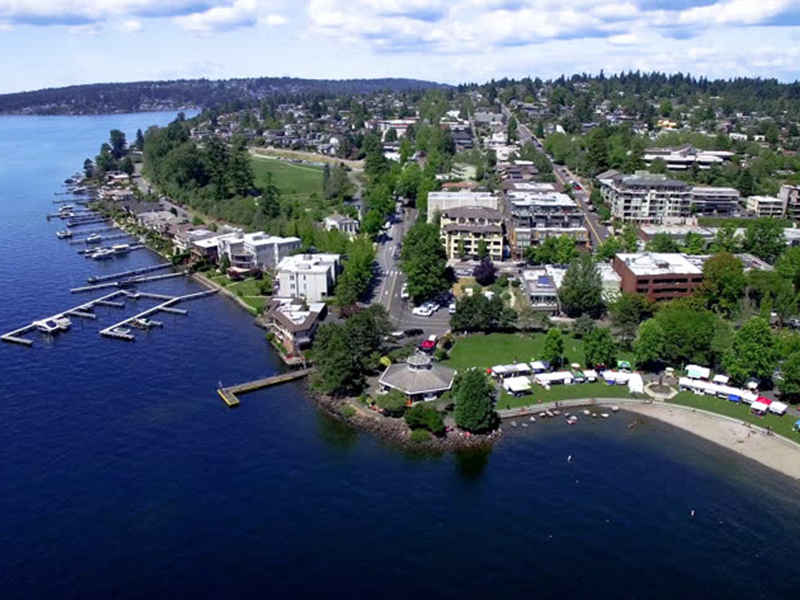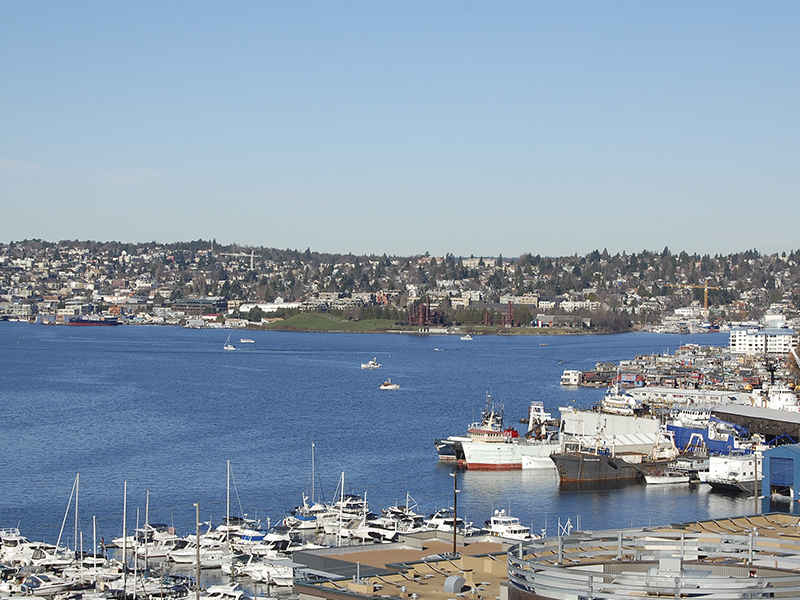You’ll never get hit with surprise charges on moving day. Our quotes are clear, fixed, and final. No hidden add-ons for stairs, heavy items, or “extra time.”
The land around Lake Washington to the east of Kirkland was first settled by Native Americans. English settlers arrived in the late 1860s, when the McGregor and Popham families built homesteads in what is now the Houghton neighborhood. Four miles (6 km) to the north people also settled near what is now called Juanita Bay, a favored campsite of the Natives because a wild potato, “wapatos”, thrived there. The Curtis family arrived in the area in the 1870s, followed by the French family in 1872. The Forbes family homesteaded what is now Juanita Beach Park in 1876, and settled on Rose Hill in 1877. Gradually, additional people settled in the area, and by the end of the 1880s a small number of logging, farming and boat-building communities were established.
Kirkland in 1912, at the modern-day intersection of Fourth Avenue and First Street overlooking Lake Washington. In 1886, Peter Kirk, a British-born enterprising businessman seeking to expand the family’s Moss Bay steel production company, moved to Washington after hearing that iron deposits had been discovered in the Cascade Range. Other necessary components such as limestone, needed in steel smelting, were readily available in the area. Further yet, a small number of coal mines (a required fuel source for steel mills) had recently been established nearby in Newcastle and train lines were already under construction. Plans were also underway to build the Lake Washington Ship Canal.


